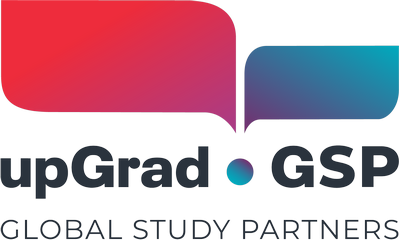The demand for tech professionals remains high as technology continuously permeates everyday life. The implications of tech are becoming so deeply embedded into society that companies are constantly looking for talent that can keep up with the dynamic field and advance the industry. As such, academic institutions around the globe are offering various tech programs to respond to the sector’s needs. Here’s a list of the most in-demand tech programs for international students:
Engineering
Engineering is the application of science and mathematics principles to solve real-world problems. Engineers design, test and build tools, machines, structures and processes to increase efficiency and productivity. The field comprises several specialisations such as infrastructure, vehicles, electronics, materials and energy systems.
Engineering is a broad discipline; international students can explore a variety of engineering programs such as:
- Mechanical engineering: Machinery, equipment and components, including their control systems.
- Electrical engineering: Electrical and electronic devices, machinery and systems.
- Civil engineering: Large infrastructure projects, like highways, railroads, bridges, etc.
- Chemical engineering: Equipment, systems and processes for refining and processing raw materials to make valuable products.
- Aerospace engineering: Aircraft and spacecrafts, as well as their parts and components.
- Nuclear engineering: Tools, systems and processes involving the production, control and detection of nuclear radiation.
- Structural engineering: Load-bearing structures, such as large commercial buildings.
- Biomedical engineering: Systems and devices related to the practice of medicine.
- Computer engineering: Computer hardware and software systems, networks and components.
- Industrial engineering: Facilities, equipment and systems for manufacturing, materials processing and other work environments.
- Environmental engineering: Prevention, reduction and elimination of pollution sources.
Information technology
Information technology (IT) is the use of computer systems to manage, process, protect, store, retrieve and transmit information or data. It’s a multi-faceted field that encompasses hardware and software, programming languages, data processing, communications, cybersecurity, networks and machine learning, among others.
International students who take IT programs can go on to pursue the following professions:
- computer technician
- network engineer
- cloud architect
- helpdesk technician
- software developer
- web developer
- programmer
- product support staff
- cybersecurity specialist
- incident responder
- data analyst
- IT manager or team lead
- chief technology officer (CTO)
- chief data officer.
Artificial intelligence
Artificial intelligence refers to the simulation of human intelligence processes by machines, enabling computer systems to perform tasks and solve problems that are commonly associated with intelligent beings. These include making predictions, identifying objects, interpreting speech and generating natural language. AI systems learn how to behave by processing massive amounts of data and analysing patterns that they can model their actions from.
AI programs can teach international students how to deal with data, facilitate machine learning, work with neural networks, teach natural language processing (NLP) and apply computer vision. All these disciplines inform AI, which enables work automation and efficient problem-solving.
Computer science
Computer science is the study of computers and computational systems, focusing on the development and testing of hardware and software. It includes the study of algorithms and data structures, network design, modelling data and information processes.
Those who study computer science programs can explore the following high-paying and in-demand jobs:
- network administrator
- web developer
- systems analyst
- program analyst
- application developer
- information security analyst
- database developer
- IT auditor
- user experience (UX) designer
- IT project manager
- Java developer
- front-end developer
- full-stack developer
- network security engineer
- mobile developer
- software architect
- network architect.
Robotics
Robotics is an intersection of engineering and computer science that involves the conception, design, manufacture and operation of robots. Robots can take on different forms—either as physical machines resembling humans or in digital forms, such as a programs or applications.
Robots are used to perform a multitude of tasks, with their applications felt in industries like home electronics, law enforcement, aerospace, mechanical engineering, agriculture, education and entertainment.
Robotics programs often go hand-in-hand with other tech-related courses, most popularly artificial intelligence and software engineering.
Cybersecurity
Cybersecurity is the practice of defending data, systems, networks and programs from digital attacks. It applies to multiple contexts focused on protecting aspects of IT such as networks, applications, information and operations, as well as disaster recovery and end-user education.
Cybersecurity graduates are highly coveted as large and small companies alike are constantly under threat of hackers and other malicious online activity. These professionals have the skills needed to ensure that systems are secure, guaranteeing smooth experiences for operators and users.
Information management
Information management is the collection and management of data from one or several sources. It also encompasses the distribution of this information to many audiences, along with the archiving and destruction of data in all its forms. This field of technology is critical in data-driven businesses as it facilitates better decision-making, focusing on the level of control an organisation has over its data.
Information management graduates go on to work in building dedicated information management systems designed to help companies use their resources properly and efficiently to support their operations and drive their goals.
Data science
Data science is similar to information management, except it deals primarily with analysing data to uncover actionable insights to guide an organisation’s decision-making and strategic planning. It’s a multidisciplinary field that combines math, statistics, programming, artificial intelligence and machine learning.
Students who graduate from data science programs become data scientists and are proficient in the following skills:
- identifying business pain points and opportunities
- applying statistics and computer science to data analysis
- using tools and techniques to prepare and extract data
- drawing insights from big data using predictive analysis and AI
- writing programs that automate data processing and calculations
- translating information to actionable results
- collaborating with other tech professionals.
Technology management
Technology management is the integrated planning, design, optimisation, operation and control of technological products, processes and services. It deals with the proper management of technology—along with the people who use it—to ensure that operations run as expected. Effective technology management extends human activities and produces defined products.
A technology management degree holder can later on work as a computer systems analyst, management information system director, computer support specialist or computer programmer, along with other managerial roles.
Data analytics
Data analytics is the science of evaluating raw data to make conclusions about information. It’s the process of using tools and techniques for collecting, transforming, organising and analysing data to find trends and patterns and answer questions. There are six main types of data analytics:
- Descriptive data analytics: Examines past data to explain what has occurred.
- Diagnostic data analytics: Analyses past data to explain the cause of a problem.
- Predictive data analytics: Using current and historical data to predict future actions and trends.
- Prescriptive data analytics: Evaluating data to select the best solution from available options.
- Real-time data analytics: Using data immediately to identify trends and set benchmarks in real-time.
- Augmented data analytics: Employing machine language and NLP to analyse data.
Data analytics can be applied in the fields of transportation, education, marketing and digital advertising, logistics and manufacturing, and security, among others. This makes it a broad field that graduates can maximise based on their chosen specialisation or niche.
Find the best tech programs for international students
upGrad GSP is ready to support students hoping to pursue flourishing careers in tech. We have partnered with various schools and universities around the globe offering some of the best tech programs for international students. Connect with our business development experts to learn more.




